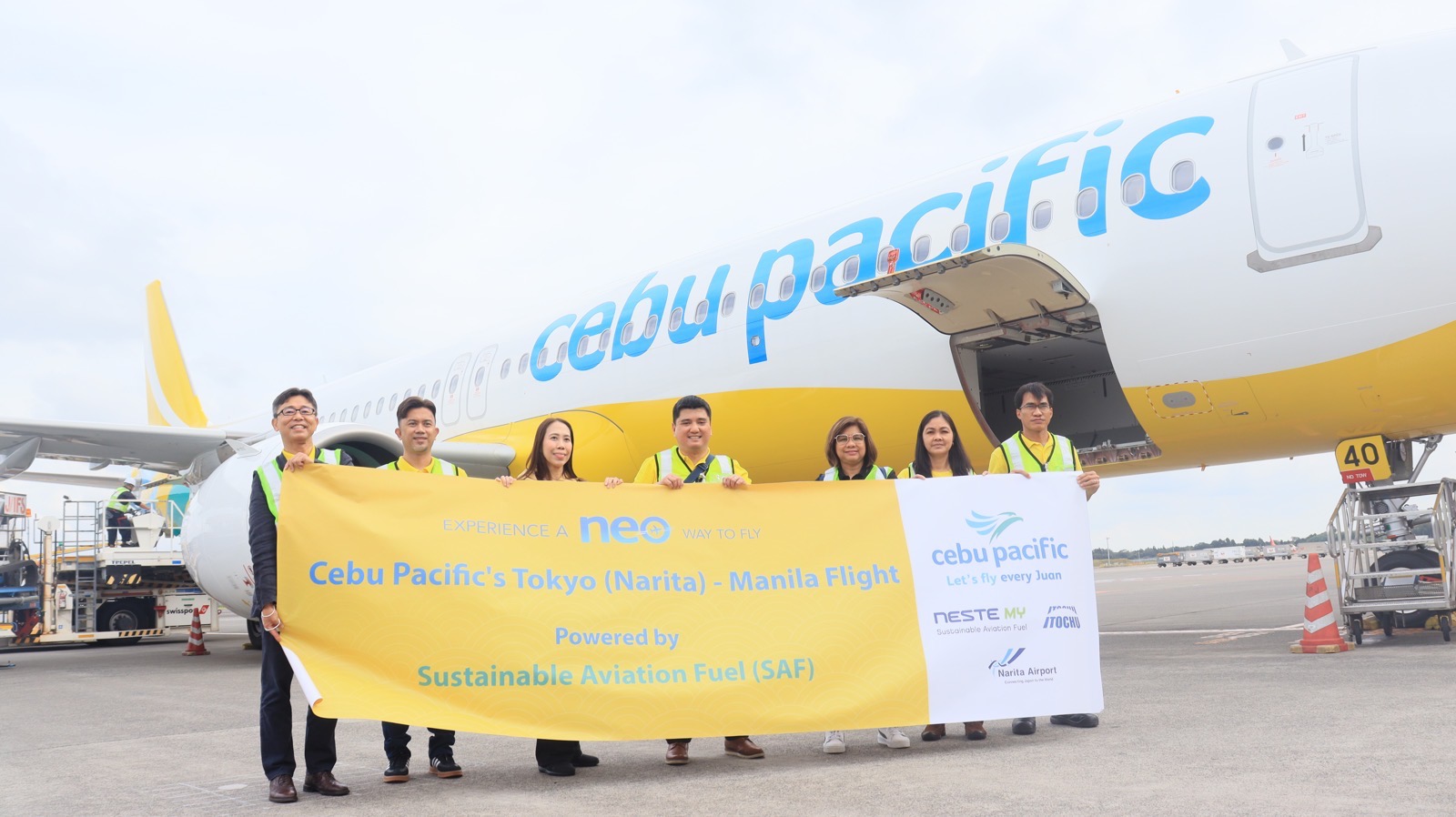CEB completes SAF-powered Narita-Manila inaugural flight
Gokongwei-owned Cebu Pacific Air (CEB) has completed its inaugural sustainable aviation fuel (SAF)-powered flight from the Narita International Airport in Japan to Manila, in fulfillment of its commitment to sustainable aviation.
CEB is the first Philippine airline carrier that has used SAF in a commercial flight from Japan, operating Flight 5J 5055 with an Airbus 321neo which used 40 percent of blended SAF produced by Finnish company Neste Corporation and supplied by Japan-based firm Itochu Corporation.

According to the airline, 44 percent less carbon emissions per passenger was observed with the blended SAF.
Cebu Pacific President and Chief Commercial Officer Alexander Lao said the inaugural flight represents the airline's efforts to make air travel more sustainable.
"Other decarbonization programs that we have put in place include investing in fuel-efficient NEOs, optimization of flight plans, and adoption of fuel efficiency best practices to minimize fuel consumption. All these are concrete sustainability initiatives that bolster our commitment and support for the aviation industry's goal of flying net-zero by 2050,” said Lao.
As CEB's SAF partner supplier, Itochu Energy Division Senior Officer Atsushi Onishi remarked that the company is looking forward to continuing its collaboration with the airline to explore more sustainable flight options.
“Our collaboration underscores the growing demand for SAF in the Asia-Pacific region and we are ready to meet that need,” said Onishi.
Moreover, Narita International Airport Executive Officer Toshio Tashiro added that he is honored that the airport was selected to conduct the SAF flights in Japan.
CEB signed a five-year agreement with Neste Corporation for long-term supply of SAF as part of its goal to integrate full and blended SAF in its entire commercial flights by 2030, use an all-New Engine Option (NEO) fleet by 2028, and reach net-zero carbon emissions by 2050.
The airline's first SAF-powered passenger flight was held in September 2022 from Singapore to Manila.